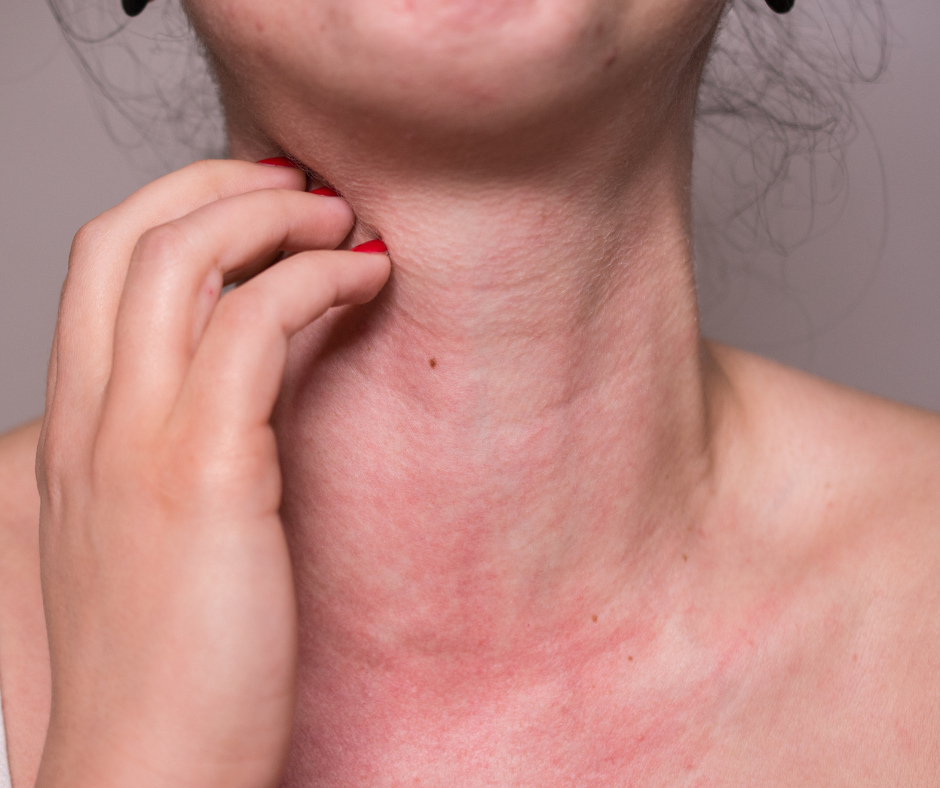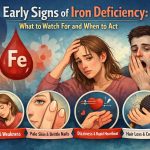Introduction: The Overlooked Connection Between Food Allergies and Fatigue
Do you feel constantly tired, even after a full night’s sleep? While stress, poor sleep, and lifestyle factors are common culprits, food allergies could be a hidden cause of persistent fatigue. Many people experience unexplained tiredness without realizing that their diet might be the trigger.
When your body reacts to certain foods, it can lead to inflammation, digestive issues, and immune responses—all of which can drain your energy.
In this article, we’ll explore how food allergies can cause fatigue, identify common allergenic foods, and discuss practical steps to manage symptoms and boost your energy levels.
Table of Contents
Can Food Allergies Cause Fatigue?
Yes, food allergies can lead to fatigue. When your immune system identifies certain foods as harmful, it triggers an inflammatory response. This process releases histamines and other chemicals, causing symptoms like swelling, digestive issues, and fatigue.

How Allergic Reactions Cause Fatigue
When your body encounters an allergen, it reacts by:
- Releasing inflammatory chemicals: This can lead to systemic inflammation, which drains your energy.
- Increasing stress on the immune system: Your immune system works overtime, leaving you feeling worn out.
- Disrupting sleep patterns: Allergic reactions can cause nasal congestion, itching, and discomfort, affecting your sleep quality and contributing to daytime fatigue.
Common Food Allergies That Can Trigger Fatigue
Certain foods are more likely to cause allergic reactions, which may lead to fatigue. Some of the most common culprits include:

1. Dairy Products
Milk, cheese, and yogurt can trigger allergic responses in some individuals, leading to inflammation and fatigue. Even mild dairy intolerance can result in bloating, sluggishness, and low energy.
2. Gluten (Wheat)
Gluten intolerance or celiac disease can cause chronic inflammation and fatigue. Even if you don’t have celiac disease, gluten sensitivity can still lead to tiredness.
3. Soy and Soy-Based Products
Soy allergies can cause digestive issues, headaches, and fatigue. Soy is often hidden in processed foods, making it a common hidden allergen.
4. Tree Nuts and Peanuts
Allergic reactions to nuts can result in inflammation, skin irritation, and energy depletion. Even mild reactions can leave you feeling tired.
5. Eggs
Egg allergies can trigger symptoms like digestive upset and fatigue. Some individuals experience chronic tiredness due to egg sensitivity.

Signs That Food Allergies May Be Causing Your Fatigue
Identifying whether food allergies are behind your fatigue can be challenging. Here are some common signs to watch for:
1. Chronic Tiredness After Eating
If you frequently feel drowsy or sluggish after meals, it may indicate a food sensitivity. This is especially common with gluten, dairy, and processed foods.
2. Digestive Issues
Bloating, gas, and irregular bowel movements can signal food intolerance or allergy. Persistent digestive problems often lead to fatigue due to poor nutrient absorption.
3. Brain Fog and Concentration Problems
Food allergies can cause cognitive issues, making it harder to focus and think clearly. This mental fatigue often accompanies physical tiredness.
4. Frequent Headaches or Migraines
Food allergies and sensitivities can trigger chronic headaches, which can drain your energy and cause fatigue.
How to Identify Food Allergies Causing Fatigue
If you suspect that food allergies are behind your fatigue, here are practical steps to identify and manage them:
1. Keep a Food Diary
Track what you eat and how you feel afterward. Note any symptoms of fatigue, bloating, or brain fog. Identifying patterns can help you spot problematic foods.
2. Elimination Diet
An elimination diet involves removing common allergens (dairy, gluten, soy, eggs, nuts) for a few weeks and gradually reintroducing them. This can help you identify which foods trigger fatigue.
3. Allergy Testing
If you experience chronic fatigue, consider getting tested for food allergies or sensitivities. Blood tests and skin prick tests can help identify allergens.
4. Consult a Nutritionist or Allergist
If you’re unsure which foods are causing fatigue, seek professional help. A healthcare provider can offer tailored advice and treatment plans.
Managing Food Allergy-Related Fatigue

Once you identify the allergens responsible for your fatigue, you can take steps to reduce symptoms and regain your energy:
1. Avoid Trigger Foods
Eliminate or reduce allergenic foods from your diet. Read food labels carefully to avoid hidden allergens.
2. Improve Gut Health
Food allergies can harm gut health, leading to fatigue. Consume probiotic-rich foods (yogurt, kefir, sauerkraut) and prebiotic fibers to support digestion.
3. Stay Hydrated
Dehydration can worsen fatigue. Drink plenty of water throughout the day, especially when managing food allergies.
4. Prioritize Rest and Recovery
Fatigue caused by food allergies can leave you feeling drained. Ensure you get adequate sleep and practice stress management techniques, such as yoga or meditation.
When to Seek Medical Help
While mild fatigue from food allergies is common, severe or chronic tiredness may require medical attention. Seek help if you experience:
- Persistent fatigue that doesn’t improve with rest.
- Severe allergic reactions (swelling, difficulty breathing).
- Unexplained weight loss or nutritional deficiencies.
Takeaway: Improve Your Energy by Managing Food Allergies
Food allergies can be an unexpected cause of chronic fatigue. By identifying and eliminating trigger foods, you can reduce inflammation, boost your energy levels, and improve your overall well-being.
If you suspect food allergies are making you feel tired, consider trying an elimination diet or consulting with a healthcare provider. Taking control of your diet can help you reclaim your energy and vitality.
Explore More Health Tips
- 10 Surprising Signs of Food Allergies You Shouldn’t Ignore
- How Gluten Intolerance Causes Fatigue and Brain Fog
Do you often feel fatigued after eating? Share your experiences or tips in the comments below. For more wellness tips, subscribe to our blog and explore our Diabetic-Friendly Recipe eBooks for healthy, allergen-free meal ideas.








